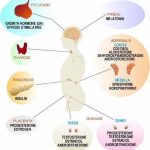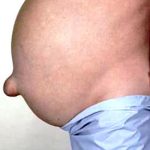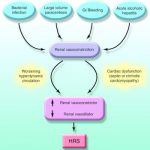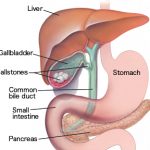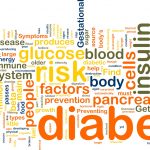Other Symptoms
Hormone Imbalance – Check Your Liver
Hormone Imbalance – Check Your Liver By: Dr. Loretta Lanphier, ND, CN, HHP, CH The liver is one of the most hard-working organs of the body and a healthy liver is critical to many aspects of overall wellness. Most people are aware that the liver is the main filter of the body. It is true…
Read MoreHernia Information
Hernia Information A hernia occurs when the contents of a body cavity bulge out of the area where they are normally contained. These contents, usually portions of intestine or abdominal fatty tissue, are enclosed in the thin membrane that naturally lines the inside of the cavity. Hernias by themselves may be asymptomatic (produce no symptoms)…
Read MoreHepatorenal syndrome: Progressive renal failure in patients with cirrhosis
Hepatorenal syndrome: Progressive renal failure KEY POINTS ■ The main driving force behind the development of hepatorenal syndrome (HRS) is portal hypertension, and the key event is linked to splanchnic arterial vasodilation. ■ Therapy should be geared toward increasing intravascular volume, as the underlying issue appears related to depletion of effective circulating volume depletion (third…
Read MoreHepatorenal syndrome (HRS)
Hepatorenal syndrome (HRS) In some patients, type 1 HRS develops spontaneously without any identifiable precipitating factor, whereas in others it can occur in close association with systemic bacterial infections, in particular SBP, acute alcoholic hepatitis, and large volume paracentesis without albumin expansion. SBP precipitates type 1 HRS in approximately 20% of cases despite appropriate treatment…
Read MoreGallstones
Gallstones Cholelithiasis; Gallbladder attack; Biliary colic; Gallstone attack; Biliary calculus Last reviewed: August 11, 2011. Gallstones are hard, pebble-like deposits that form inside the gallbladder. Gallstones may be as small as a grain of sand or as large as a golf ball. See also: Acute cholecystitis Choledocholithiasis Causes, incidence, and risk factors The cause of…
Read MoreFour Ways to Beat Cirrhosis Fatigue
Four Ways to Beat Cirrhosis Fatigue Fatigue is a problem frequently experienced by those with chronic hepatitis. Fortunately, there are several different kinds of approaches that can help mitigate fatigue. by Nicole Cutler, L.Ac. As the most common symptom of chronic hepatitis, fatigue is also one of the hardest ones to address. Likely because of…
Read MoreFatigue and Liver Disease
Fatigue and Liver Disease In this article, which is excerpted from my book “ Dr. Melissa Palmer’s Guide to Hepatitis and Liver Disease” I will discuss one of the most common and debilitating symptoms among individuals with liver disease – fatigue. Fatigue is a symptom characterized by a diminished ability to exert oneself, usually associated…
Read MoreCase Study: Diabetes in a Patient With Cirrhosis
Diabetes in a Patient With Cirrhosis J.T. is a 72-year-old man with chronic hepatitis C and Child-Pugh grade A (clinically well-compensated) cirrhosis. He takes propranolol for esophageal variceal bleeding prophylaxis. He had a blood transfusion 25 years ago. Hepatitis C was diagnosed 10 years ago, and cirrhosis was diagnosed by liver biopsy 2 years ago.…
Read MoreBlood Viscosity as a Factor in all Metabolic Diseases
Blood Viscosity as a Factor in all Metabolic Diseases While it is true that a man is “as old as his arteries”, equally true is that his health is only as good as the health of his blood. The bloodstream is known as the “river of life”, and it is the purity of the river…
Read More